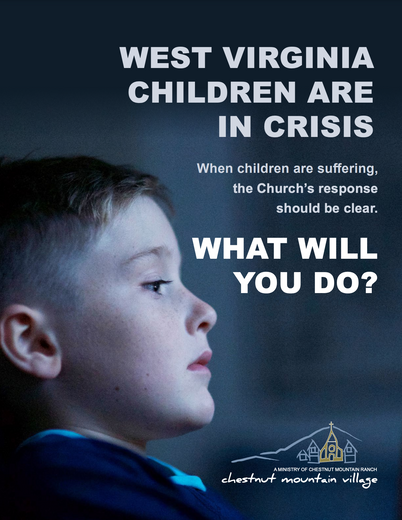
This is part one of Chestnut Mountain Village’s three-part blog series focusing on The Church and Foster Care in West Virginia. The different parts of the “Hope and Homes Series” will focus on West Virginia’s foster care challenges, why the Church should be engaged in the issues, and how churches can impact vulnerable children and families in practical and meaningful ways. In this first installment, we will look at the challenges faced by West Virginia’s children. We will, particularly, look at specific data around foster care and kinship care in the Mountain State.
The available statistics related to West Virginia’s foster and kinship care situation paint a grim picture. On almost every metric, West Virginia does not compare favorably to national averages.
Consider the following sample of information:
- According to the latest WV DHHR legislative statistics, roughly 6,700 West Virginia children currently live in foster care. This means that, per capita, West Virginia continues to have one of the highest rates of children in foster care in the nation.
- Per the State of Babies, for every 1,000 babies born in West Virginia, 25 are removed due to maltreatment. This is more than three times the national average.
- Furthermore, it has been reported that West Virginia removes children from their homes at a rate nearly 5 times the national average.
- Estimates vary widely on the number of children being raised by their grandparents in West Virginia. However, according to the Grandfamilies Collaborative, there are over 22,000 grandparents responsible for their grandchildren; 33,000 children being raised by kin with no parent present; and 49,698 children living in homes where a relative is head of the household.
- A 2019 estimate suggested that the vast majority of grandparents in some West Virginia counties lived with and were responsible for grandchildren. At least one county had 82% of grandparents in the county living with and responsible for their grandkids.
The reasons that West Virginia children are placed in foster care or kinship care are different than much of the country. Per Child Trends, the leading reason that children go into foster care in the U.S. is neglect. In West Virginia, neglect is typically involved, but most children are removed from their homes as a direct result of parental substance abuse. The rate of children born in West Virginia with opioid addiction was 51 per 1000 in 2017 (Umer, Loudin, Maxwell et al), compared to 7 per 1000 nationally at that same time (Owens and Hirai).
Individuals who experience foster care often have long-term emotional, social, and mental health impacts that go well beyond the duration of their care outside of the home. In addition, those experiences are strongly negatively correlated with long-term employment, housing, and other important factors.
The data is clear, many West Virginia children and families are suffering. This includes extended families that often bear the brunt of the responsibilities for children when parents are unable to care for them. In a situation like this, how does the Church respond? What are its Biblical responsibilities? Contact The Village to learn how your church can join the movement to care for vulnerable children and families in your community.
